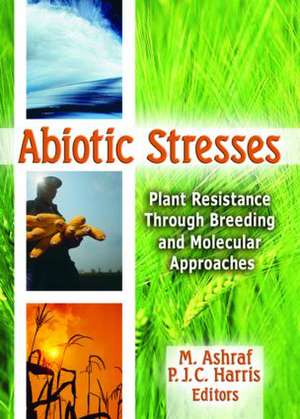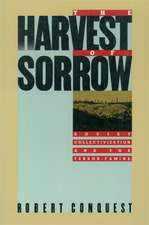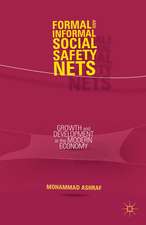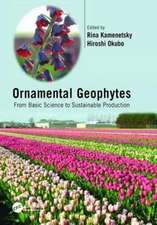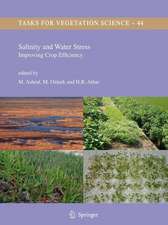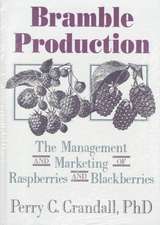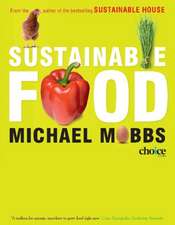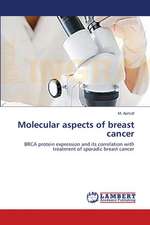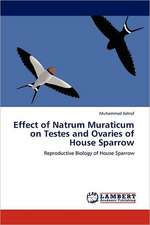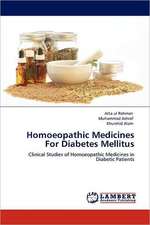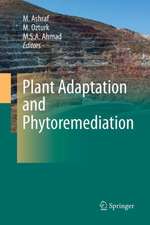Abiotic Stresses: Plant Resistance Through Breeding and Molecular Approaches
Editat de M. Ashraf, Philip Harrisen Limba Engleză Paperback – apr 2005
Abiotic Stresses: Plant Resistance Through Breeding and Molecular Approaches explores innovative methods for breeding new varieties of major crops with resistance to environmental stresses that limit crop production worldwide. Experts provide you with basic principles and techniques of plant breeding as well as work done in relation to improving resistance in specific important world food crops. This book supplies extensive bibliographies at the end of each chapter, as well as tables and figures that illustrate the research findings.
Abiotic Stresses is divided into two sections. In the first section, you will find:
- the general principles of breeding crops for stress resistance
- genetic engineering and molecular biology procedures for crop improvement for stress environments
- data on genome mapping and its implications for improving stress resistance in plants
- information about breeding for resistance/tolerance to salinity, drought, flooding, metals, low nutrient availability, high/low temperatures
- wheat
- barley
- rice
- maize
- oilseed crops
- cotton
- tomato
| Toate formatele și edițiile | Preț | Express |
|---|---|---|
| Paperback (1) | 775.47 lei 6-8 săpt. | |
| CRC Press – apr 2005 | 775.47 lei 6-8 săpt. | |
| Hardback (1) | 1057.64 lei 6-8 săpt. | |
| CRC Press – 7 apr 2005 | 1057.64 lei 6-8 săpt. |
Preț: 775.47 lei
Preț vechi: 1109.41 lei
-30% Nou
Puncte Express: 1163
Preț estimativ în valută:
148.39€ • 161.69$ • 125.04£
148.39€ • 161.69$ • 125.04£
Carte tipărită la comandă
Livrare economică 23 aprilie-07 mai
Preluare comenzi: 021 569.72.76
Specificații
ISBN-13: 9781560229650
ISBN-10: 1560229659
Pagini: 756
Ilustrații: Illustrations (some col.), maps (some col.)
Dimensiuni: 152 x 229 x 44 mm
Greutate: 1.08 kg
Ediția:New.
Editura: CRC Press
Colecția CRC Press
ISBN-10: 1560229659
Pagini: 756
Ilustrații: Illustrations (some col.), maps (some col.)
Dimensiuni: 152 x 229 x 44 mm
Greutate: 1.08 kg
Ediția:New.
Editura: CRC Press
Colecția CRC Press
Public țintă
ProfessionalCuprins
Preface PART I: GENERAL OVERVIEW Chapter 1. Stress Environments and Their Impact on Crop Production (Shafiq-ur-Rehman,P. J. C. Harris, and M. Ashraf) Introduction Biotic and Abiotic Stresses Multiple and Variable Stresses and Tolerance Abiotic Stress Symptoms Major Abiotic Stresses Limiting Crop Yield Crop Production in Stressful Conditions Future Prospects Chapter 2. Breeding for Stress Resistance: General Principles (Mervyn O. Humphreys and Michael W. Humphreys) Introduction Breeding for Improved Stress Resistance The Genetics of Abiotic Stress Tolerance Mechanisms of Stress Resistance The Role of Genetic Engineering in Breeding: Implications and Limitations Conclusion Chapter 3. Use of Genetic Engineering and Molecular Biology Approaches for Crop Improvement for Stress Environments (Viswanathan Chinnusamy, Liming Xiong, and Jian-Kang Zhu) Introduction Osmolytes/Osmoprotectants Oxidative-Stress Tolerance Stress Proteins Cellular Membrane Stability Salt-Stress Tolerance: Ion Homeostasis Water Uptake and Transpiration Cell-Wall Elasticity Marker-Assisted Selection Conclusions and Future Perspectives Chapter 4. Genome Mapping and Its Implications for Improving Stress Resistance in Plants (Nguyen Thi Vinh and Andrew H. Paterson) The Impact of Drought, Salinity, and Acid Soil Conditions for World Agriculture Selection of Stress-Tolerant Crop Cultivars Application of DNA Markers to Improve Stress Tolerance Conclusion
Notă biografică
M. Ashraf, University of Agriculture, Faisalabad, Pakistan. Philip Harris.
Descriere
Abiotic Stresses explores innovative methods for breeding new varieties of major crops with resistance to environmental stresses that limit crop production worldwide, such as drought, salinity, flooding, and mineral deficiency. Experts provide you with basic principles and techniques of plant breeding as well as work done in relation to improving resistance in specific important world food crops. The book supplies extensive bibliographies at the end of each chapter, as well as tables and figures that illustrate the research findings. This timely resource will help scientists and academics in botany, plant breeding, plant environmental stress studies, agriculture, and horticulture modify and improve breeding programs globally.
To view an excerpt online, find the book on our QuickSearch catalog at www.HaworthPress.com.
To view an excerpt online, find the book on our QuickSearch catalog at www.HaworthPress.com.
